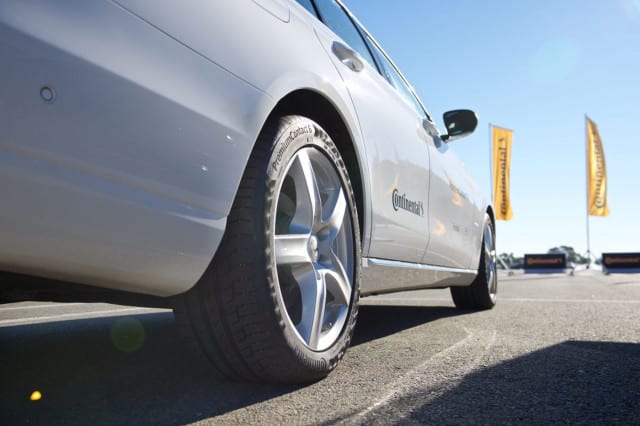
Why in the summer you should not ride winter tires?
Content
As temperatures rise, it's time to start thinking about replacing your winter tires with summer ones. Like every year, it's a good idea to apply the "seven-degree rule" - when the outside temperature rises to around 7°C, you need to put on summer tires.
Some motorists due to quarantine did not have time to change tires in time. Continental says why it is important to travel with the right tires even in the warmer months.
1 More safety in summer
Summer tires are made of special rubber compounds, which are heavier than winter tires. Greater tread profile toughness means less deformation, while winter tires with their soft compositions are particularly prone to deformation at high temperatures.

Less deformation means better handling and less braking distance. On dry surfaces and in warm weather, even worn out summer tires have a shorter braking distance than new winter tires (although we do not recommend that you drive rubber with worn out treads). There is also a difference in tread pattern: summer ones have special deep channels that divert water. This makes them safer in the rain, while winter treads are more consistent with snow, ice and wet snow.
2 They are greener and more economical
Summer tires have lower rolling resistance than winter tires. This increases efficiency and therefore reduces fuel consumption. In the season when we usually make the longest trips, this has a tangible effect on both your wallet and air quality.
3 noise reduction
Thanks to many years of experience, Continental can say that summer tires are quieter than winter ones. The tread profile in summer tires is much tougher and has less material deformation. This reduces noise and makes summer tires a much better choice when it comes to driving comfortably.

4 Endurance at high temperatures
In the summer months, asphalt often heats up to extreme temperatures. For this, varieties of summer tires are being developed. Driving on winter tires on roads of the second and third class, where there are small stones, can lead to uneven wear of the tread (during engagement, a piece of the tread can break out). Winter tires are also much more susceptible to mechanical damage due to their soft material.
The company notes that more and more people are interested in all-weather tires. Although they are recommended for those who drive a little (up to 15 km per year), use your car only in the city (low speeds). Such rubber is suitable for those who live in regions with mild winters or do not drive regularly in the snow (they often stay at home when the weather becomes really bad).

Continental is adamant that all-season tires can only be a compromise between summer and winter tires due to their physical limitations. Of course, they are a much better choice for summer temperatures than winter tires, but only summer tires provide the best level of safety and comfort in summer.
